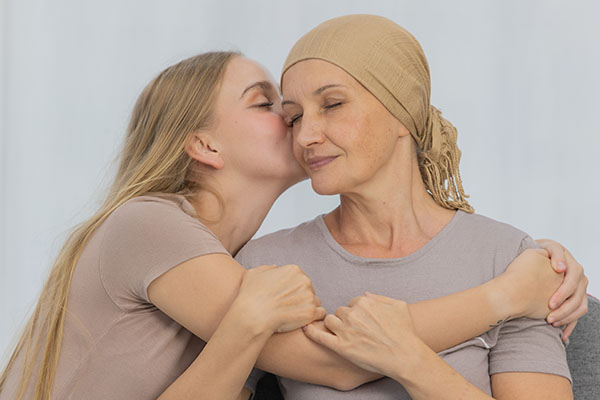Supporting a Loved One With Chemotherapy

Cancer patients and their loved ones often find the chemotherapy treatment process to be emotionally taxing and stressful. The love and encouragement of friends and family are invaluable to a person battling cancer. However, a cancer diagnosis may throw everyone for a loop and force them to reevaluate their roles. Those who have never had to fight cancer themselves, no matter how much they want to help, can never completely comprehend the mental and physical anguish that their loved one is going through. This article discusses how you can help your loved one feel less alone as they navigate this journey.
Emotional support
The availability of emotional support is perhaps the most important provision for a cancer patient. This is not about playing the role of therapist, but rather being able to recognize the indications of a mental health issue.
Depression, anxiety, sadness, and rage are emotions that have been reported among cancer patients and cancer survivors after the diagnosis and during the treatment of the disease. One might propose that they contact a therapist to help develop coping mechanisms and if necessary, receive medication. The presence of support groups, both virtual and physical, is another viable alternative.
Be accessible
Simply being there for the patient is a powerful act of kindness. This necessitates listening to them as they share their thoughts, emotions, and worries. It may also involve being physically there for them, such as going to appointments with them or just being a shoulder to cry on. Helping the patient with logistics, like getting to and from appointments, is also incredibly useful.
Be patient
Being patient and understanding is crucial. Side effects from chemotherapy include weakness, sickness, and balding. Due to these adverse effects, the patient may find it challenging to engage in their usual activities. The patient's loved ones should consider this and be patient with them as they adjust to their new limits. They may need to rest more often than usual, or they may be unable to participate in their normal activities. It is advisable to recognize the need for adaptability and patience in the face of these changes.
Offer practical help
Helping a loved one with daily activities is a great method to show support throughout chemotherapy. Cooking, cleaning, and doing errands are all in this category. Having a family member or friend assist with these duties is valuable because they might become burdensome for the patient during treatment. Remembering that it is okay to ask for assistance and delegate responsibilities helps alleviate stress for the patient and their loved ones, as well as foster a feeling of belonging and camaraderie among those involved.
Get more information
Learn as much as possible about chemotherapy and the individual patient's treatment plan. Individuals will have a higher chance of comforting the patient if they have a firm grasp of what they are going through. It is also crucial to know where the patient and their loved ones may turn for psychological and emotional help. Professional therapy or support groups may be a lifeline throughout the emotionally trying process of cancer treatment.
Do not neglect self-care
A person's loved ones should prioritize their own health and well-being during this time. When caring for a loved one who has cancer, it is crucial to remember to take care of oneself too. Exercising, meditating, or seeing a therapist are all options to consider. It is essential to get enough rest and eat well so as to provide full support.
Be positive
Keeping up appearances of normality and happiness can help a loved one going through chemotherapy. This involves making an effort to continue with the patient's pre-treatment habits and interests. This step can help maintain the patient's feeling of security and control. Supporters may also remind the patient to prioritize self-care by encouraging them to engage in activities that bring them pleasure.
Conclusion
Being there for a loved one through chemotherapy treatment might be difficult, but it is also a chance to demonstrate that you care. The most important thing that you can do is to offer adequate support. Keep in mind that undergoing cancer treatment is not only a medical ordeal but also an emotional one, and the presence of caring loved ones may make a world of difference in the patient's ability to heal and feel secure. Providing emotional and practical support and creating a feeling of normality and optimism can help a cancer patient through chemotherapy treatment.
Request an appointment here: https://lindenbergcancer.com or call Lindenberg Cancer & Hematology Center at (856) 475-0876 for an appointment in our Marlton office.
Check out what others are saying about our services on Yelp: Chemotherapy in Marlton, NJ.
Recent Posts
Blood clot disorders include a spectrum of inherited or acquired conditions that disrupt healthy circulation, elevate the risk of blockage, and threaten vital organs. An oncologist frequently monitors patients for clotting complications because cancer, certain chemotherapies, and reduced mobility intensify thrombotic tendencies. Early recognition of warning signs, together with prompt intervention, significantly lowers the possibility…
Lung cancer treatment has advanced significantly in recent years, allowing for more personalized approaches that improve outcomes and reduce unnecessary side effects. Personalized lung cancer treatment plans are developed based on several factors, including the type and stage of cancer, genetic markers, overall health, and the patient's unique response to specific therapies. These tailored strategies…
An ovarian cancer diagnosis can be scary, as this form of cancer often develops without noticeable symptoms in the early stages. As the disease progresses, it can become more difficult to treat, making early awareness important. Knowing the signs, understanding the diagnostic process, and learning about treatment options from an oncologist can offer patients hope…
Gynecological cancer treatments target cancers that affect the female reproductive organs, such as ovarian, uterine, cervical, vaginal, and vulvar cancers. Fortunately, there have been significant medical advances in cancer treatment that have greatly improved patient outcomes, allowing oncologists to adjust therapies to fit each patient's needs and overall health. These targeted treatments work better than…


